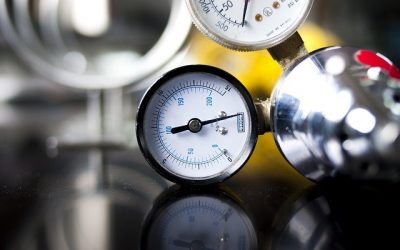Abstract Background: Traditional peripheral biofeedback has grade A evidence for effectively treating migraines. Two newer forms of neurobiofeedback, EEG biofeedback and hemoencephalography biofeedback were combined with thermal handwarming biofeedback to treat 37...
Neurofeedback
Long-term effects of neurofeedback treatment in autism
Abstract Previously we demonstrated significant improvement of executive functions and social behavior in children with autism spectrum disorders (ASD) treated with 40 sessions of EEG neurofeedback in a nonrandomized waiting list control group design. In this paper we...
Increased 8-hydroxy-deoxyguanosine, a marker of oxidative damage to DNA, in major depression and myalgic encephalomyelitis / chronic fatigue syndrome
Abstract Background: There is now evidence that major depression and myalgic encephalomyelitis / chronic fatigue syndrome (ME/CFS) are accompanied by partially overlapping pathophysiological mechanisms, i.e. activation of various inflammatory and oxidative &...
Associations of depression with C-reactive protein, IL-1, and IL-6: a meta-analysis
Abstract Objective: To assess the magnitude and direction of associations of depression with C-reactive protein (CRP), interleukin (IL)-1, and IL-6 in community and clinical samples. Methods: Systematic review of articles published between January 1967 and January...
Neurofeedback improves executive functioning in children with autism spectrum disorders
Abstract Seven autistic children diagnosed with autism spectrum disorders (ASD) received a neurofeedback treatment that aimed to improve their level of executive control. Neurofeedback successfully reduced children's heightened theta/beta ratio by inhibiting theta...
Neurofeedback and Lyme’s Disease: A Clinical Application of the Five Phase Model of CNS Functional Transformation and Integration
Introduction: Neurofeedback has generated enormous interest recently, especially in regards to ameliorating the effects of the immune system involved in disorders like Lyme's Disease. Although neurofeedback itself does not mitigate the disease processes that are...
Hyperbaric oxygen attenuates apoptosis and decreases inflammation in an ischemic wound model
Abstract The molecular mechanisms whereby hyperbaric oxygen (HBO) improves ischemic wound healing remain elusive. In this study, a rat model of wound ischemia was used to test the hypothesis that HBO enhances wound healing by modulating hypoxia-inducible factor-1alpha...
Neurofeedback training in major depressive disorder: A systematic review of clinical efficacy, study quality and reporting practices
Abstract Major depressive disorder (MDD) is the leading cause of disability worldwide. Neurofeedback training has been suggested as a potential additional treatment option for MDD patients not reaching remission from standard care (i.e., psychopharmacology and...
Positive behavioral and electrophysiological changes following neurofeedback training in children with autism
Abstract Two electrophysiological studies tested the hypothesis that operant conditioning of mu rhythms via neurofeedback training can renormalize mu suppression, an index of mirror neuron activity, and improve behavior in children diagnosed with autism spectrum...








